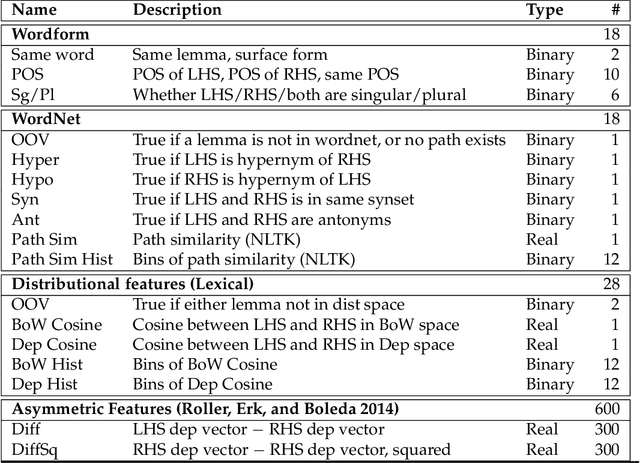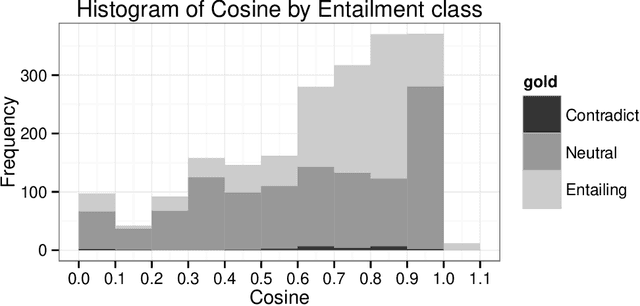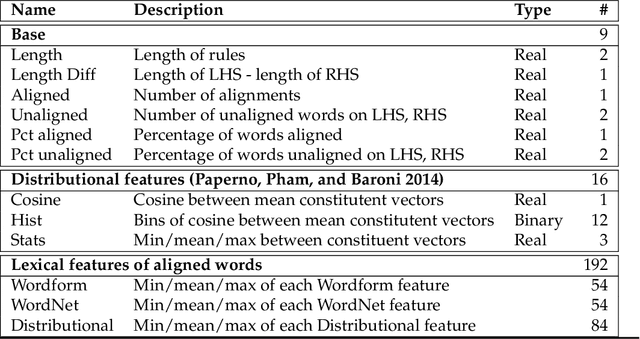Representing Meaning with a Combination of Logical and Distributional Models
Paper and Code
Jun 08, 2016



NLP tasks differ in the semantic information they require, and at this time no single se- mantic representation fulfills all requirements. Logic-based representations characterize sentence structure, but do not capture the graded aspect of meaning. Distributional models give graded similarity ratings for words and phrases, but do not capture sentence structure in the same detail as logic-based approaches. So it has been argued that the two are complementary. We adopt a hybrid approach that combines logic-based and distributional semantics through probabilistic logic inference in Markov Logic Networks (MLNs). In this paper, we focus on the three components of a practical system integrating logical and distributional models: 1) Parsing and task representation is the logic-based part where input problems are represented in probabilistic logic. This is quite different from representing them in standard first-order logic. 2) For knowledge base construction we form weighted inference rules. We integrate and compare distributional information with other sources, notably WordNet and an existing paraphrase collection. In particular, we use our system to evaluate distributional lexical entailment approaches. We use a variant of Robinson resolution to determine the necessary inference rules. More sources can easily be added by mapping them to logical rules; our system learns a resource-specific weight that corrects for scaling differences between resources. 3) In discussing probabilistic inference, we show how to solve the inference problems efficiently. To evaluate our approach, we use the task of textual entailment (RTE), which can utilize the strengths of both logic-based and distributional representations. In particular we focus on the SICK dataset, where we achieve state-of-the-art results.
 Add to Chrome
Add to Chrome Add to Firefox
Add to Firefox Add to Edge
Add to Edge